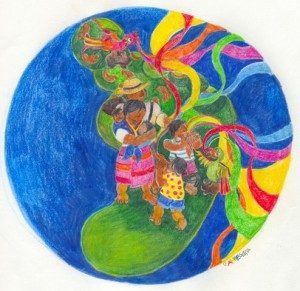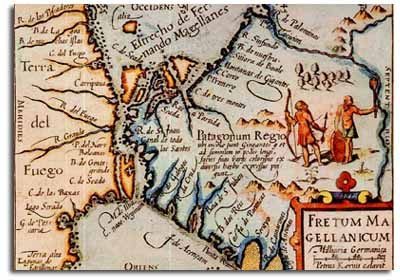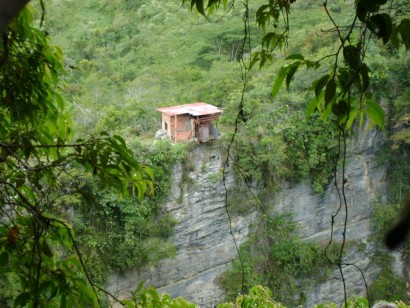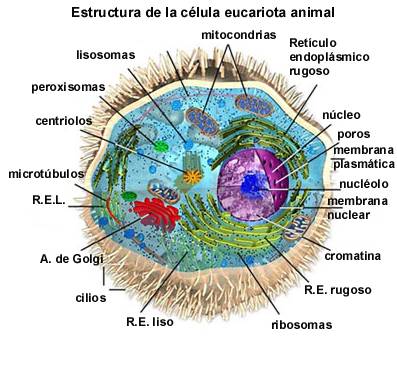That which is original to the place where you live
 It is said that something or someone is aboriginal when it comes and is native to the place where they live, so, in addition to referring to a person who belongs to an aboriginal tribe, the term may also refer to an animal or a plant.
It is said that something or someone is aboriginal when it comes and is native to the place where they live, so, in addition to referring to a person who belongs to an aboriginal tribe, the term may also refer to an animal or a plant.
Original inhabitant of a territory
In the case that the word refers to an individual, popularly, people use it to account for the primitive and original inhabitant of a territory, while the same as such will differ not only in origin but also in terms of uses and customs with those who subsequently settled in the region in question.
Thus, the word aboriginal is used more frequently as a synonym for the term indigenous; In its strictest and most specific sense, the indigenous person will be that person who belongs to a certain ethnic group that holds and preserves its own traditional non-European culture. Almost all aborigines or indigenous people are part of an organizational tradition long before the birth of the Modern State.
The American aborigines, for example, are known as Indians, a name that resulted after the confusion with which the Spanish colonizers arrived in America; because it is worth remembering that in reality when Admiral Christopher Columbus arrived in America and discovered the new continent, he believed that he had reached India, which was the objective of his trip. Later, the mistake was resolved, however, the name was extended and for this reason it is still used in that sense today.
The most relevant aborigines of America
America began to be populated about twenty-five thousand years ago and the settlers came from Asia and Oceania. The constant waves made the populations move until the continent was completely inhabited.
Very different cultures coexisted in the American continent and there were aboriginal peoples who showed splendor and fantastic progress in almost all levels of life, economic, political, social, cultural, artistic, among others.
Mayas, Incas and Aztecs, without a doubt, were the most prominent native peoples.
An almost obligatory issue that almost all the aborigines or indigenous people on planet earth have suffered is that they had to give in to the new culture that came to their territories, either due to assimilation, violence, subjugation or a combination of all these aspects.
A very long history of violence and abuse
Precisely the colonization of America, is one of the events that is most associated with mistreatment and violence against native peoples because it should be noted that these native peoples welcomed the settlers in peace but on their part they found nothing but deception and evil deals. Many conquerors reduced the aborigines to slavery and dedicated them to the performance of forced labor. This whole situation was repeatedly denounced, however, its eradication cost a lot and of course it took many lives along the way.
Even the institution of the encomienda, so widespread in America after the discovery and that it implied that a group of individuals rewarded another with work the enjoyment of a good or some benefit obtained, was used by many colonists as a form of veiled slavery. .
In addition and closely related to the aforementioned, the aborigines are the representatives of a culture that was savagely discriminated against and persecuted by Europeans, even beyond the Spanish conquest of America. With their rights curtailed and forced to put aside their traditions, the aborigines spent many centuries in the background. These days there is a conscience that promotes a different state of things and that advocates the recognition of their rights and permanence in their lands with their habits. A sample of the progress that has been made in this sense in almost the whole world is that a Bolivian aborigine, Evo Morales, has become the president of his country, something unthinkable decades ago and that obviously indicates the improvement that has occurred in this sense.
The tragedy of the Qom in Argentina
Now, having mentioned these conquests and advances, we must also say that not all aboriginal communities today live a panacea, far from it. We only have to look at the Qom ethnic group in Argentina to know that this is not the case and that there is still a lot of discrimination against the aborigines.
In the 16th century, approximately, the Qom settled in the northern part of Argentina, occupying the current provinces of Chaco, Salta, Santiago del Estero and Formosa. The apathy of the governments of these places condemned them to live miserably in their original areas and to fight today for a few hectares that the Formosan government has taken from them and does not want to recognize them as their own.
They have spent months camping and gathering support on Buenos Aires 9 de Julio avenue, waiting for the authorities to give them a solution to their difficult situation.
Different studies indicate that there are currently 350 million aborigines in the world and although many communities assimilated several of the customs of Western culture, others maintain their original characteristics. There are approximately 5,000 peoples that maintain their linguistic and cultural particularities.









